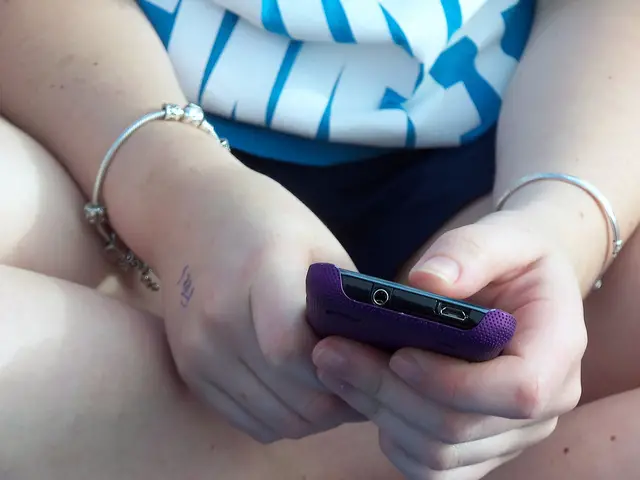We always welcome a Letter to the Editor to share with our readers – unsurprisingly they don’t always reflect the views of this publication. If you have something you’d like to share, get in touch and of course, your considered comments are welcome below. This from Emma Motherwell, NSPCC Local Campaigns Manager for London and South East. Ed
Modern technology means video is one of the most popular methods of communication for young people to stay in touch with friends and family.
Popular video sites and apps such as Snapchat, Musical.ly and Periscope allow them to broadcast real-time, live video to an audience over the Internet – known as live-streaming. But sadly, as new statistics released by the Internet Watch Foundation (IWF) revealed on Tuesday (15 May), there are risks.
Images and video of child sexual abuse
Over a three-month period research revealed 2,082 images and videos of live-streamed child sexual abuse were identified. Of those images 98% were of children aged 13 and under, 28% were aged 10 or under, and the youngest victim was just three-years-old.
It is truly horrifying to imagine that children are being coerced and manipulated to live-stream their own sexual abuse.
Tech industry need to take responsibility
Too many children are abused on social media platforms, and it is time for the tech industry to take responsibility and do more to tackle abuse at its source.
Culture Secretary Matt Hancock is in the process of drawing up an Internet Safety Strategy, but it is expected to bring in a social media safety code which is voluntary in nature and doesn’t include plans to prevent grooming.
As a result the NSPCC’s #WildWestWeb campaign is urging Mr Hancock to bring in a mandatory safety code to regulate social networks to keep children safe online and help prevent grooming.
Add your support
Your readers can join us by sending an email or tweet to the Secretary of State for Digital, Culture, Media and Sport, asking him to bring in a new law to keep children safe online.
More details on the campaign can be found on the NSPCC Website.
In the meantime parents can play a part in keeping their children safe by talking to them about being Share Aware. Information about the the social networks, apps and games children and young people use can also be found via the charity’s Net Aware tool.
Image: summerskyephotography under CC BY 2.0





